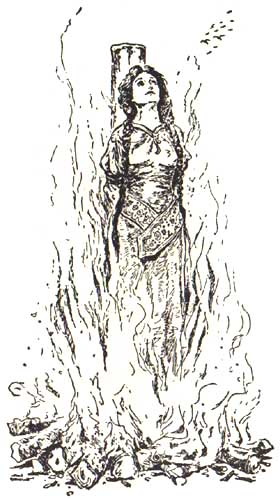
“The Twelve Brothers” by Jacob and Wilhelm Grimm
Today’s fairy tale is just chock full of goodies. We’ve got an evil father, a loving mother, a young innocent woman who marries a king, a mean mother-in-law, an enchanted cottage in the woods, people who turn into birds, an old mysterious woman. A little bit of everything really.
The story starts off with a king and queen who seem happy enough and have twelve sons. Dad though tells his wife what will happen if the thirteenth child is a girl.
If the thirteenth child which thou art about to bring into the world, is a girl, the twelve boys shall die, in order that her possessions may be great, and that the kingdom may fall to her alone.
Apparently, he actually wants a daughter to pass his kingdom on to, which I found surprising. Nice change in that he values the daughter, but crazy too. He actually has the 12 coffins built and locks them away in the room.
I read another version where the reason the boys must die has nothing to do with the inheritance. “I would rather cut off all their heads than have a girl among them.” Of course, if that be the case, why not just kill the girl? Either way, this time it’s the father who’s awful, not a female character.
The mother is incapable of protecting her sons, so she send them out into the woods, telling them she will signal if the baby is a boy or girl. Of course, it’s a girl and the 12 boys live in a cottage in the woods for the years, taking care of themselves, fearing to return home.
Eventually, the girl discovers that she has brothers by seeing their shirts in the wash. No, I don’t know why the shirts are in the laundry. It doesn’t really make any sense, but this is a fairy tale and she did have to find out some way. After hearing what happened from her mother, she goes out into the woods and finds her brothers. She joins them in the cottage, helping with the housework, and they live happily together. The Grimms really do appreciate tidiness, hard work, and self-reliant children, don’t they? The happiness ends when the sister picks the twelve lilies growing in the garden at which point her brothers, without warning of any kind, turn into ravens and fly away at the same moment the cottage and the garden disappear. An old lady tells the girl that the only way for her brothers return to human-form is for her to be silent, no talking or laughing, for 7 years, which of course she swears to do.
Enter the king, who meets the young woman in the woods, falls in love with her because of her beauty, and asks her to marry him. She nods and they are wed. The King’s mother however is evil and says horrible things about the girl, accusing her of all types of wickedness. The poor girl cannot speak for herself, and eventually the King becomes convinced and sentences his young, mute wife to death.
And now a great fire was lighted in the courtyard in which she was to be burnt, and the King stood above at the window and looked on with tearful eyes, because he still loved her so much. And when she was bound fast to the stake, and the fire was licking at her clothes with its red tongue, the last instant of the seven years expired. Then a whirring sound was heard in the air, and twelve ravens came flying towards the place, and sank downwards, and when they touched the earth they were her twelve brothers, whom she had delivered. They tore the fire asunder, extinguished the flames, set their dear sister free, and kissed and embraced her.
The young woman explains everything to the King, stays with him, and all of them, including the brothers, live happily ever after. Well, except the evil mother-in-law, who “was taken before the judge, and put into a barrel
filled with boiling oil and venomous snakes, and died an evil death.”
Wow, so much more going on than in most of these short tales. You can find the whole story at Project Gutenburg.
After reading it all, I have to say, first, I was surprised by how many points it has in common with other fairy tales. I see bits of The Six Swans, Hansel and Gretel, and marrying a prince or king happens all the time in Fairy Tale Land, especially for young, innocent, beautiful women.
But why on earth does the girl stay with her husband? He was going to have her killed, burned at the stake. I understand he was going to cry over it, but he was still going to do it! And didn’t her father’s behavior at the beginning give her some clue that maybe Kings have a different way of thinking than the rest of us?
Tif, from Tif Talks Books, is the hostess of this great feature, Fairy Tale Fridays. Head over there later today to see what she has to say and to share your own thoughts. Next week, we’ll be looking at Strega Nona by Tomie DePaolo.
Good points, all, but I’m still busy imagining venomous snake bodies floating in a cauldron of hot oil.
I am with you on the staying part, I mean come on I would tell the king to f off if he tried to burn me on the stake. There is something like too much forgivness
I’ve not read this one but I do love how incredibly gory the Grimm brothers are in their retellings. No Disney versions here. 🙂
How did I miss this one?!?! So sorry about that!
Anyways, it is so funny . . . I was wondering why the shirts were still in the wash all these years later as well!!! Very good point!!! 🙂